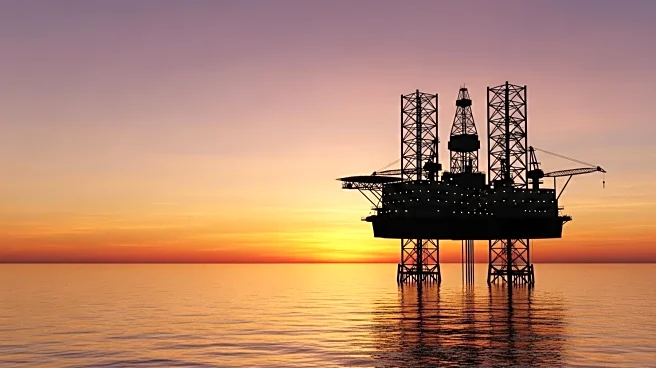What's Happening?
Sable Offshore Corp., a Houston-based company, is seeking assistance from the Trump administration to advance an offshore oil project in California that has been stalled due to regulatory hurdles. The project, located off the coast of Santa Barbara, involves tapping into hundreds of millions of barrels of crude oil. State regulators have opposed reopening pipelines that transport the crude to refineries, prompting Sable to consider using tanker ships to export the oil to other markets. The Trump administration's National Energy Dominance Council, led by Interior Secretary Doug Burgum and Energy Secretary Chris Wright, is engaged in discussions with Sable regarding the project. Environmental groups have criticized the proposal, arguing that it attempts to bypass state oversight.
Why It's Important?
The stalled project highlights the ongoing tension between state regulations and federal energy policies. If Sable proceeds with exporting oil via tanker ships, it could impact California's fuel supplies and result in lost jobs and tax revenue. The situation underscores the broader debate over energy independence and environmental protection, with potential implications for local economies and national energy strategies. The Trump administration's involvement suggests a push for lower gas prices and increased oil production, which could influence future regulatory decisions and energy policies.
What's Next?
Sable Offshore Corp. is awaiting state approval to reopen the pipelines, but if denied, the company plans to proceed with the tanker ship alternative. This decision could lead to further discussions between state and federal authorities, as well as potential legal challenges from environmental groups. The outcome may set a precedent for similar projects facing regulatory obstacles, influencing the balance between state and federal control over energy resources.
Beyond the Headlines
The project raises ethical and legal questions about the balance between economic development and environmental protection. The use of tanker ships to circumvent state regulations could lead to increased scrutiny of corporate practices and regulatory frameworks. Long-term, this situation may prompt discussions on sustainable energy solutions and the role of government in managing natural resources.









